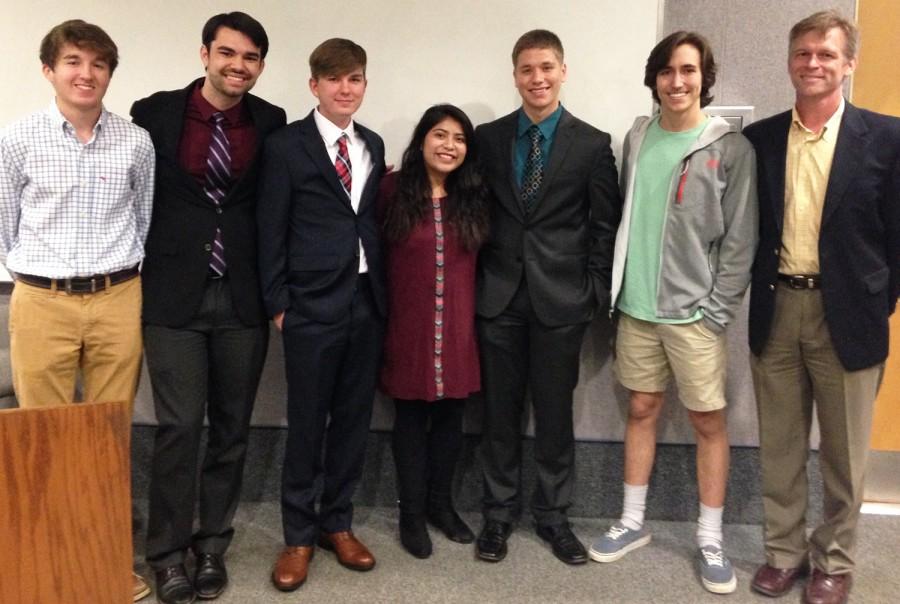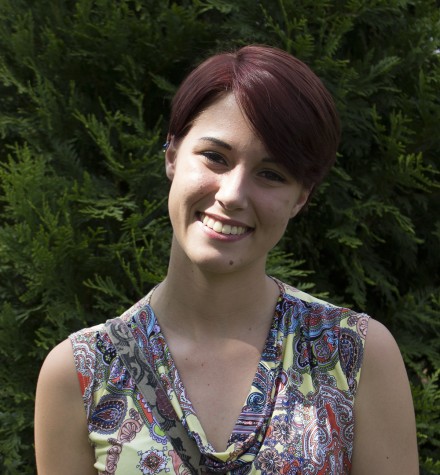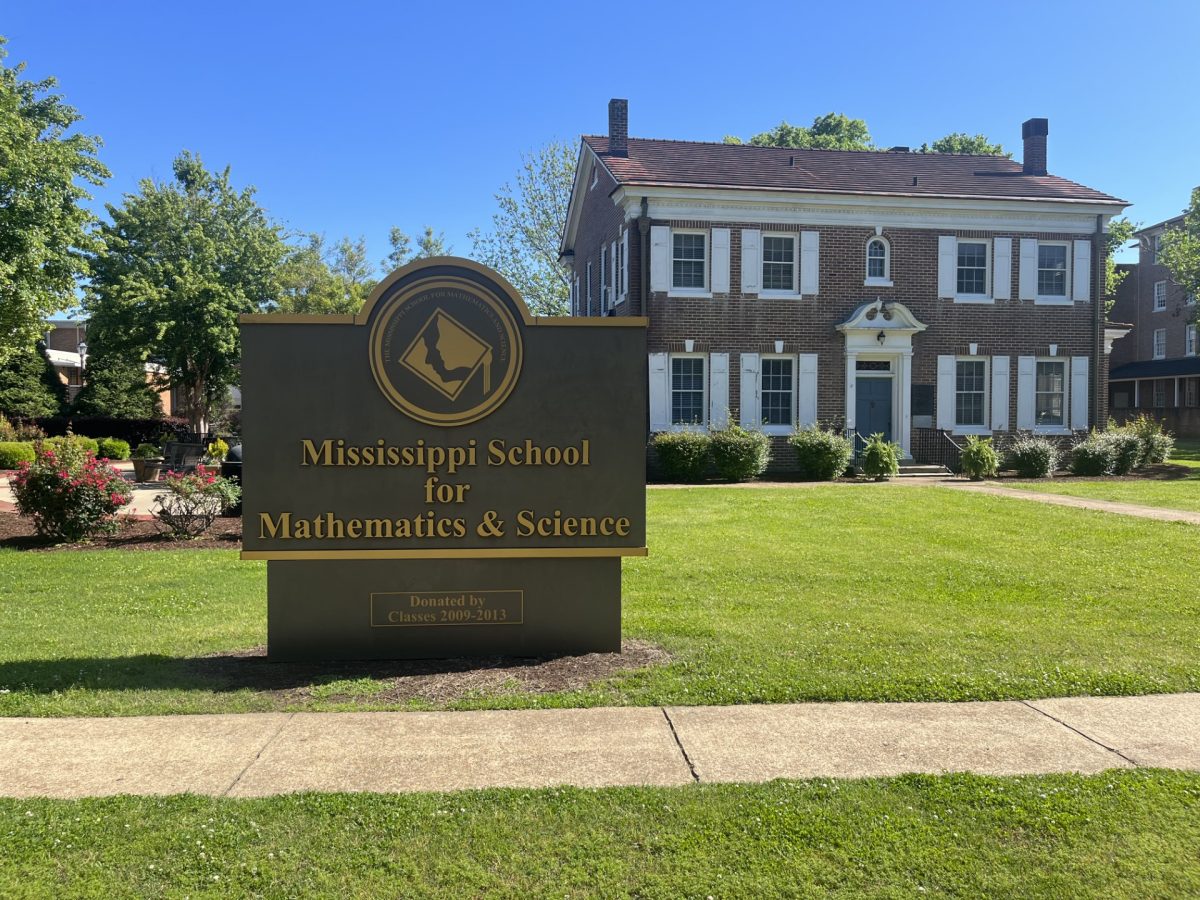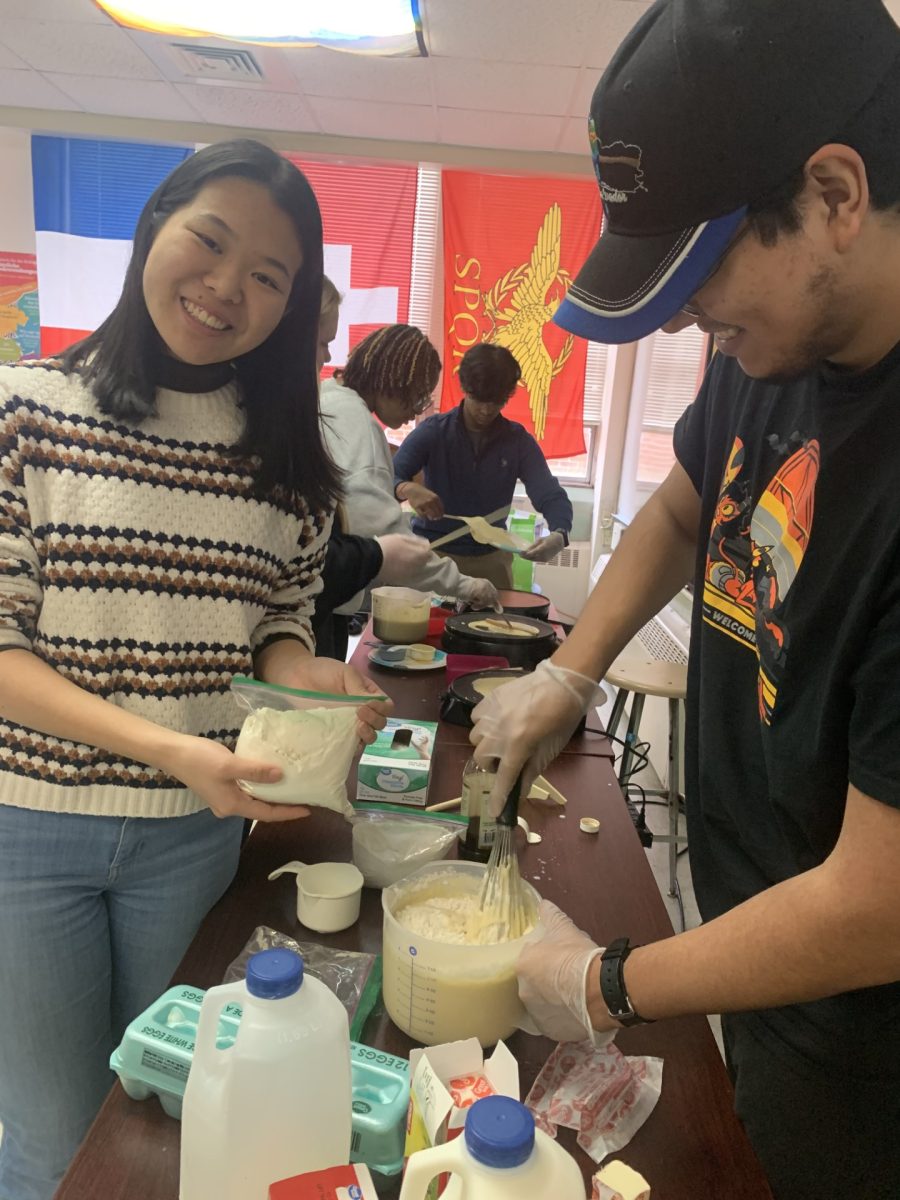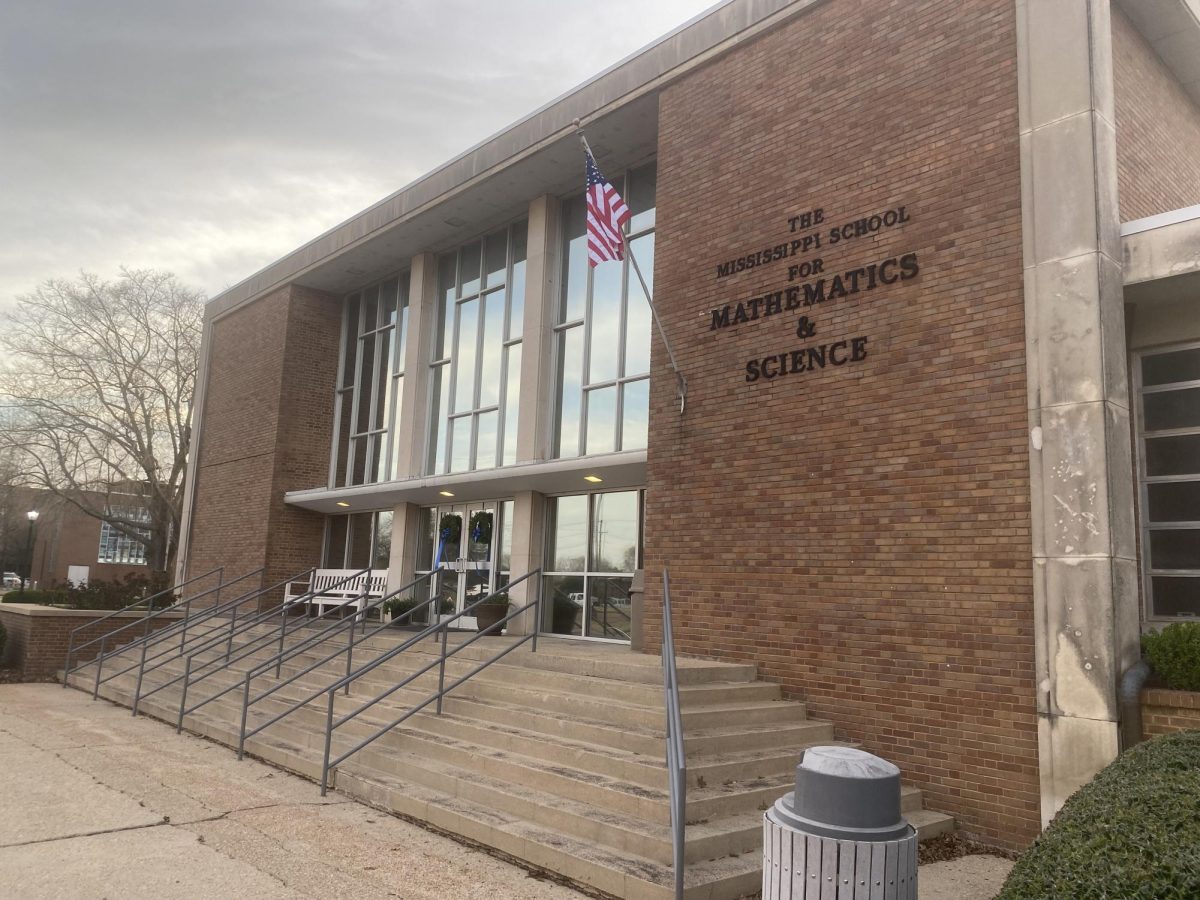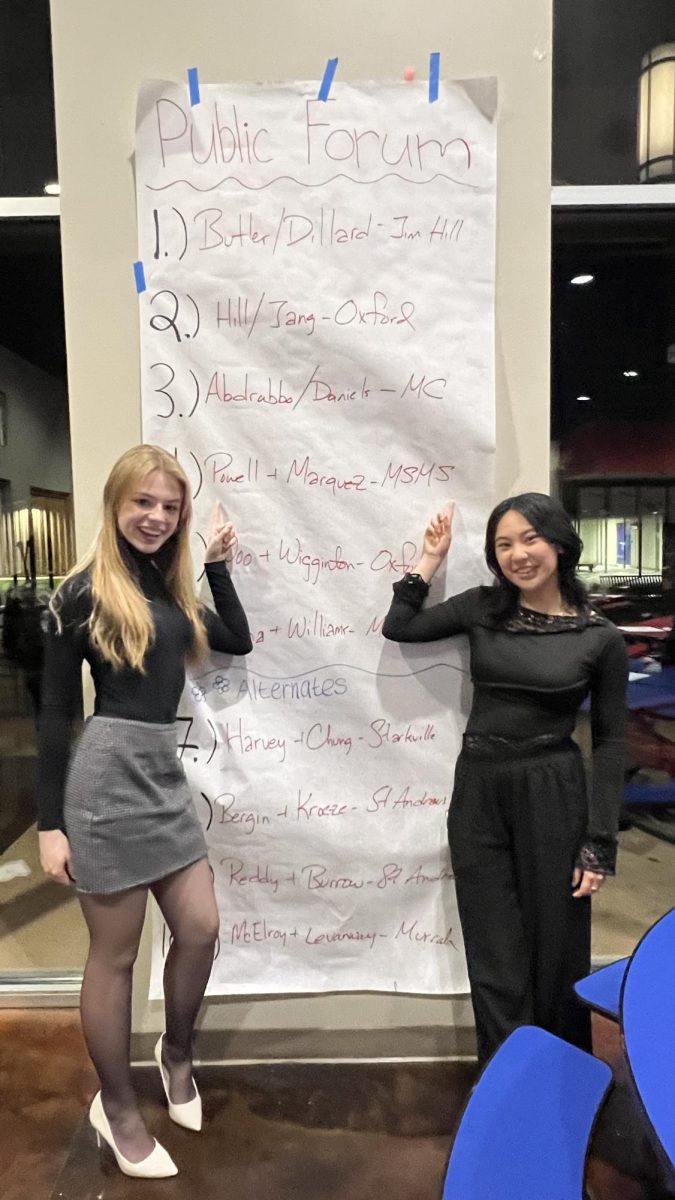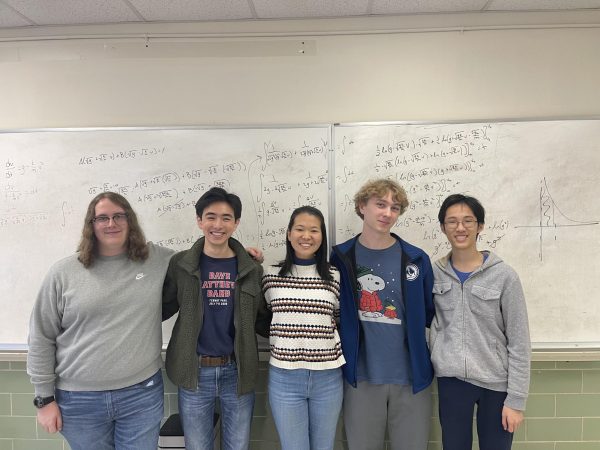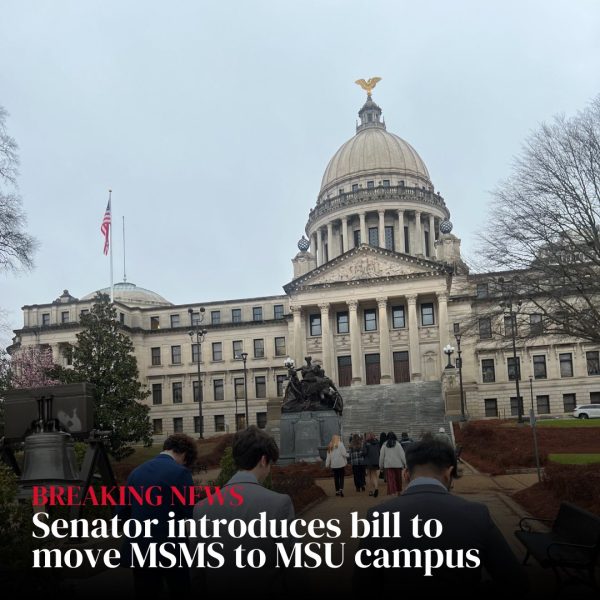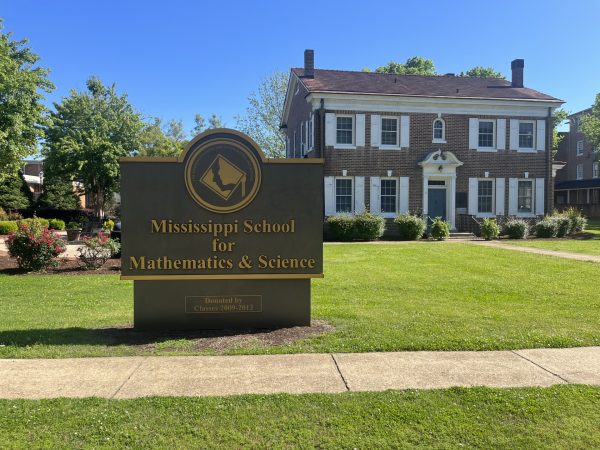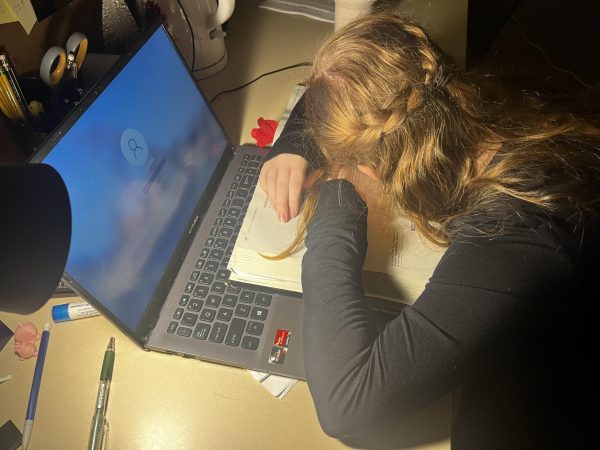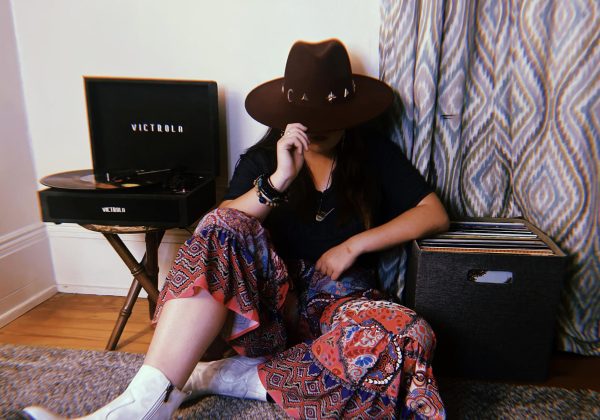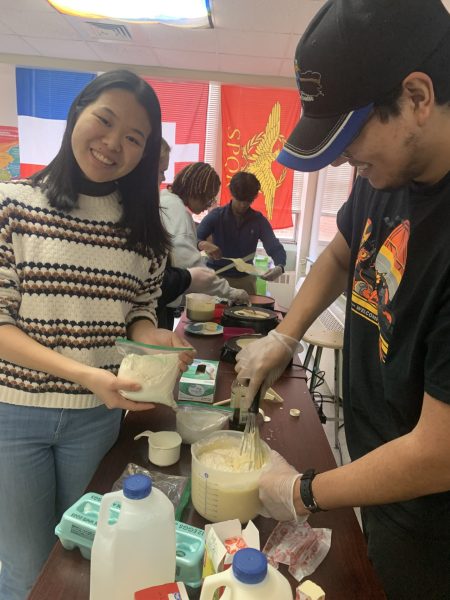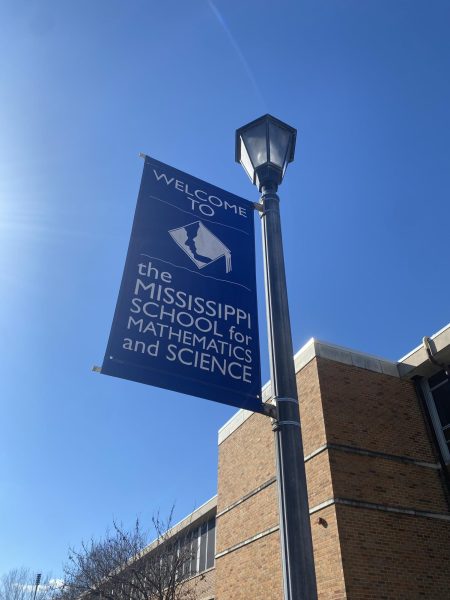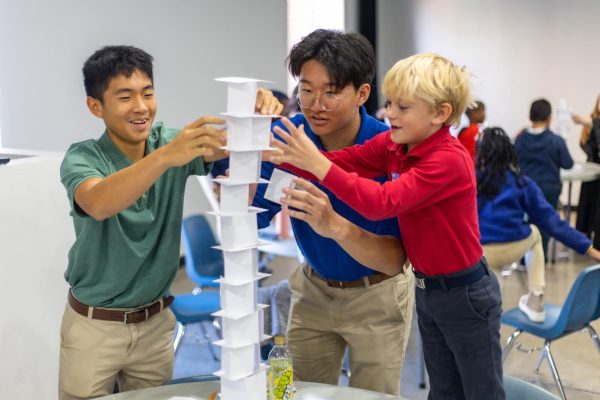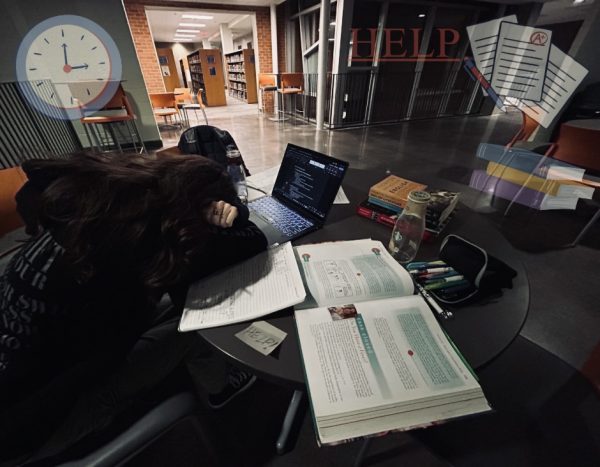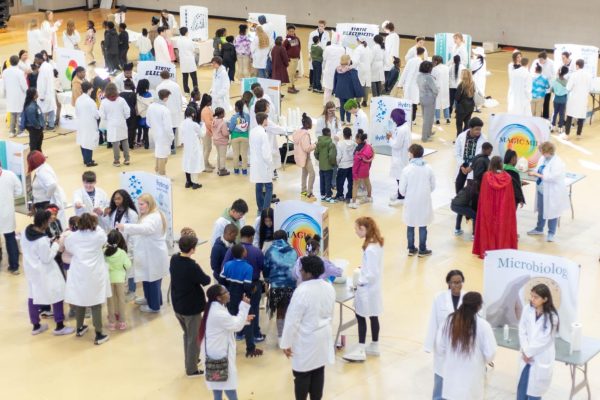MSMS’s First Interfaith Summit
MSMS’s chapter of Interfaith Dialogue celebrates a successful summit on April 16. Pictured from left: Noah McKone, Jake Bozlee, Connor McNamee, Bianca Martinez, Braeden Foldenauer, Dustin Dunaway and Dr. Thomas Easterling.
April 25, 2016
While MSMS has always boasted a diverse student body, one club worked to bring that value to the forefront. MSMS’s chapter of Interfaith Dialogue hosted a summit between various religious leaders in the community on April 16. Four representatives for Christianity, Judaism, Hinduism and Islam spoke for an hour and 15 minutes and continued to answer student questions for another half hour.
Officers Jake Bozlee, Connor McNamee, Braeden Foldenauer, Noah McKone and Bianca Martinez offered the same sentiment for the event: they felt there is a present need for encouragement to learn about other cultures, especially religions, in Mississippi. “I wanted to promote religious understanding, especially for Islam,” Foldenauer said.
Dr. Seth Oppenheimer, representing Judaism, spoke predominantly on the evolution of Judaism, its differences from Christianity and misconceptions about Jewish beliefs. “What matters is how you act, not so much what you believe,” Oppenheimer stated. He said that specific beliefs actually vary within the Jewish community because of this principle.
Oppenheimer said that a major misconception is that Jews worship strictly from the Old Testament, and the religion is constantly evolving. “Every human being is created in the image of the Holy,” he concluded.
A pastoral counselor at Baptist Memorial Hospital, Steve Brown spoke on Christianity and the involved spirituality. He held that all people were created with the spirit within them. As such, religion is not something that is learned; he believes it is who people are, how they live. Brown also covered common misconceptions about Christianity and Christians during his talk. Fighting the stereotype that Christians hold judgement against people for any said “sins,” he said, “I believe we have the freedom to act in a way that is consistent with the way we were created.”
Referring to the National Day of Prayer, Brown asserted that he believed the day was meant for all religious groups. “It’s a day where everyone can say, ‘This is what we believe,’” Brown said.
The third speaker, Chinmoyee Datta, shared her religion, the largest polytheistic religion in the world, Hinduism. She revealed that there are technically 33 billion gods and goddesses in the Hindu belief system because each higher power takes on different forms; although, the main three gods are Brahma, the Creator; Vishnu, the Preserver; and Shiva, the Destroyer.
Datta explained the four parts of Hinduism: Ahimsa, Dharma, Karma and Punarjanma/Moksha. Ahimsa refers to the moral principle of nonviolence. Dharma indicates the religious or moral duties of an individual; meanwhile, Karma involves the actions of those individuals that affect the fates of their next lives. Finally, Punarjanma and Moksha relate the afterlife. Punarjanma means reincarnation; people are reborn to live according to Dharma. When they are done being reincarnated and have completed their time on Earth, they reach the ultimate liberation, or Moksha.
Datta said, “I am Hindu; I believe in Hinduism. And I believe in other things because that is a key part of my religion.”
The final presenter, Dr. Rani Warsi Sullivan, spoke about Islam, focusing on common misconceptions and comparisons to Christianity. Sullivan taught that Islam is one of the three Abrahamic religions, and Muslims regard Jesus as one of the major prophets. She explained the breakdown of the Abrahamic evolution of religion. Abraham had two sons, Isaac and Ishmael; Judaism came from Isaac’s line and Islam came from Ishmael’s line. Christianity then came from Judaism.
She said that the Quran was written over 23 years, and that Muslims formally pray five times per day. A difference from Christianity, she said, is that Muslims believe that everything is born without sin. “We do not bear any original sin.” Another difference is that they believe Jesus was saved from the cross.
Sullivan stated that an offensive misconception is that Muslims worship Muhammad. She said, “We only bow to our god.” Sullivan argued the terrorist stereotype, saying that rules of Jihad are being broken by the terrorists too. Even in high violence, there are supposed to be restrictions – similar to the Geneva Convention.
Questions were asked ranging from the diets of each religion to other common misconceptions. In the Q&A part of the summit, senior Kendall Palmer asked the panel of speakers about their feelings towards HB1523, a religious freedom bill that was recently approved by Governor Phil Bryant. The controversy lies in the bill’s limitations for LGBTQ+ rights. All of the speakers present (Brown had to leave due to duties at the hospital) echoed each other in saying that the bill is discriminatory and a violation of the separation between church and state.
More than 50 MSMS students attended the summit, and Dr. Thomas Easterling, the sponsor for Interfaith Dialogue, indicated an intention to host a similar event next year with more speakers.

